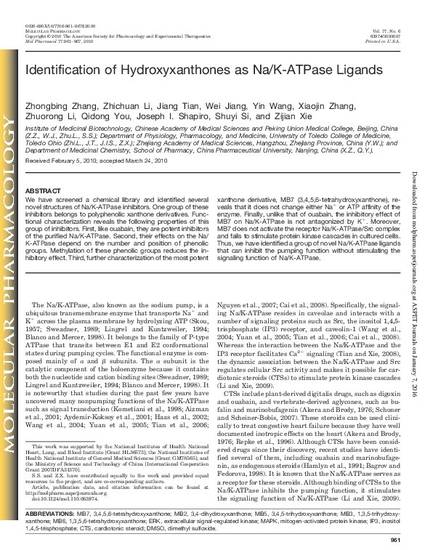
We have screened a chemical library and identified several novel structures of Na/K-ATPase inhibitors. One group of these inhibitors belongs to polyphenolic xanthone derivatives. Functional characterization reveals the following properties of this group of inhibitors. First, like ouabain, they are potent inhibitors of the purified Na/K-ATPase. Second, their effects on the Na/K-ATPase depend on the number and position of phenolic groups. Methylation of these phenolic groups reduces the inhibitory effect. Third, further characterization of the most potent xanthone derivative, MB7 (3,4,5,6-tetrahydroxyxanthone), reveals that it does not change either Na+ or ATP affinity of the enzyme. Finally, unlike that of ouabain, the inhibitory effect of MB7 on Na/K-ATPase is not antagonized by K+. Moreover, MB7 does not activate the receptor Na/K-ATPase/Src complex and fails to stimulate protein kinase cascades in cultured cells. Thus, we have identified a group of novel Na/K-ATPase ligands that can inhibit the pumping function without stimulating the signaling function of Na/K-ATPase.

The copy of record is available from ASPET at http://molpharm.aspetjournals.org/content/77/6/961.full.pdf. Copyright © 2010 The American Society for Pharmacology and Experimental Therapeutics. DOI:10.1124/mol.110.063974